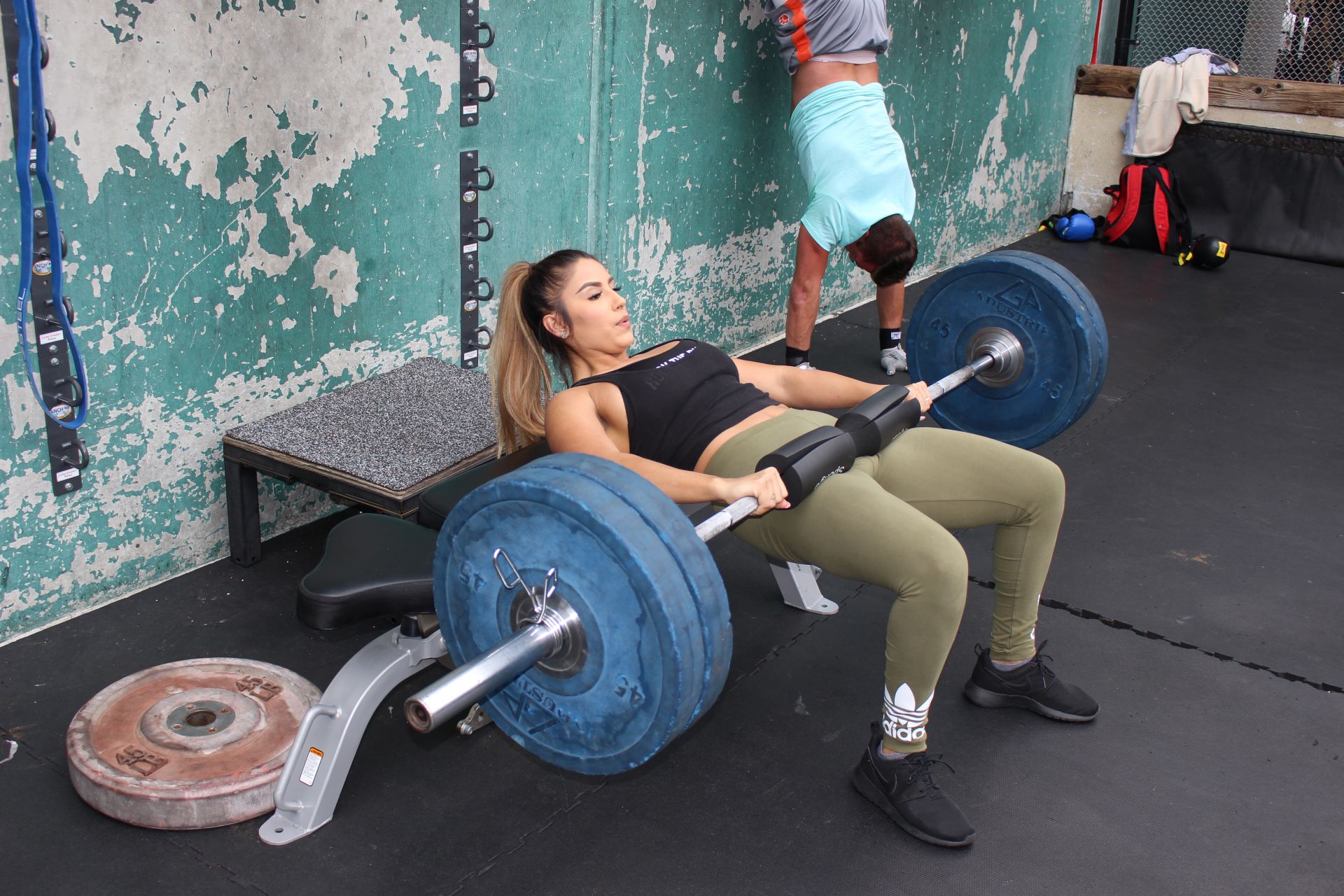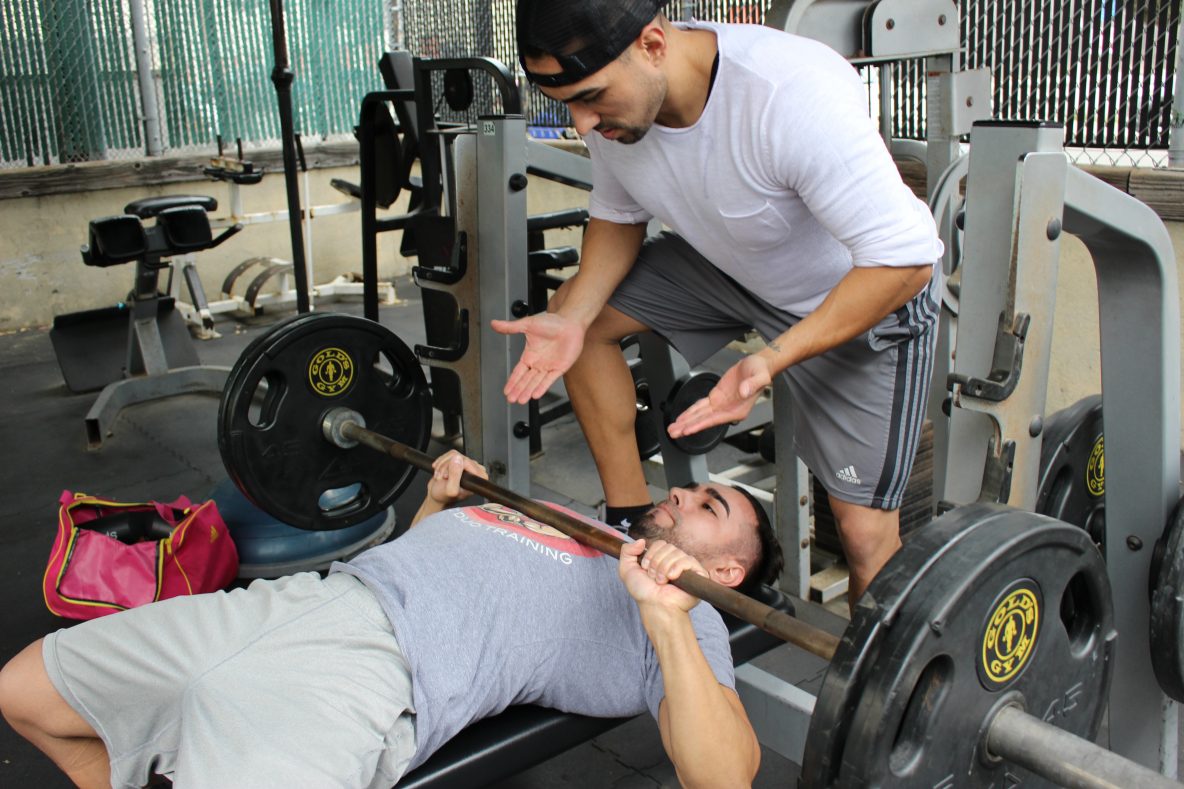By Eric and Chris Martinez
January 2016-
The Biggest Loser, Insanity, P90x, Jillian Michaels DVD’s, and other exercise programs advocate kicking your ass during your training.
They advertise this perception that if you don’t walk away after your workout saying “god that workout kicked my ass” then you didn’t train hard enough, you half assed it, you don’t want it bad enough, and you aren’t going to get results.
This perception of an “ass kicking or nothing” training session is misleading and wrong.
There is no peer reviewed scientific data indicating that you have to “kick your ass” during a training session to induce results.
So why do it then?
A lot of people want to kick their asses during training because they get this sense of relief and satisfaction that they got an awesome and beneficial workout and thus they will get better results.
Psychologically we can’t blame you for this, as its in our nature and DNA to want to get this feeling after a workout.
But, how do you know that if this is counterproductive to your results or not?
We are not saying that training hard and giving your all is a bad thing, far from that as we advocate training hard. But there’s a difference with training hard and literally kicking your ass to the ground every session.
We’re about to tell you why kicking your ass during training isn’t helping you.
Training to Failure Constantly Can be Counterproductive
If you are following one of these workouts where you are supposed to be kicking your ass, then you are training to failure throughout your workouts and during every workout session.
A 2000 study out of the Journal of Strength and Conditioning showed excessive training with more than 90% of 1RM can impair and even reduce performance (1).
The study above supports the intensity variation of training to failure and how if it’s overused it can be counterproductive to your training and overall results. Here’s what you need to know about training to failure:
- Training to failure is a tool, it’s a useful tool but you have to be careful to not over use it
- Training to failure has to be cycled and volume needs to be cut down a bit
- Constantly training to failure will have counterproductive effects, but if you train to sub maximal sets you will be able to make better gains
- If you’re constantly training to failure, your energy for your central nervous system drive will eventually crash, your neuromuscular system will have nothing left to put out and your strength will start to regress
- Constantly training to failure will induce a lot of muscle damage, which leads to excessive soreness, and when you are constantly sore you can’t train at an optimal level (2)
- Excessive training to failure could lead to injuries and mental burnout
The reason we have our clients stop 1-2 reps shy of failure is because you’ll still get a good stimulation of the muscle and create muscle damage, but you won’t neuromuscularly drain yourself to where it’s hard for you to maintain that power output.
For example:
Squatting to failure for 10 reps on the first set and then trying it again with the same weight for your second set, you probably won’t be able to even do 5 reps. As opposed to stopping 1-2 reps shy of failure, you could do multiple sets of 10 reps and this creates a greater muscle overload and overall volume. If you are going to use training to failure, use it on your last sets only.

There is a Such Thing as Overtraining
The National Strength and Conditioning Associations standard text books states:
“Overtraining which is typically caused by extreme levels of training frequency, volume, intensity, or a combination of these variables without sufficient rest or recovery (3).”
Overtraining is often confused with “Overreaching.” Overtraining is misinterpreted and there’s no research on this, but there is a thing called overreaching and this consists of performance going down, losing a bit of strength, losing a little endurance, and hormonal profiles might be out of whack, and might end up losing drive to train. Research shows if you give yourself time to recover after an overreaching period, your body has a snap back effect where you get a lot of gains (3).
What you need to know about overtraining is you can overtrain your neuromuscular system, but as far as overtraining your muscles, there has never been any evidence that we are aware of that shows a muscle has been so overtrained to become catabolic. You will literally lose the will, the drive, and the mental focus before you ever overtrain a muscle.
Another major misconception with overtraining is soreness. Just because you’re sore after a new routine doesn’t mean you are overtrained, it just means you created a lot more muscle damage and your body needs to adapt to the new training stimulus.
To avoid overtraining your neuromuscular system, you need to use proper periodization when programming your training which includes strategically manipulating training frequency, volume, and intensity over time.
You Don’t Have to Kick Your Ass During Training Anymore
As you can see, you don’t have to literally kick your ass during training anymore. Nor do you have to walk away after your workout saying “god that workout kicked my ass.”
The most important things you need to understand about kicking your ass during training are:
- Training to failure too often can be counterproductive
- Excessive muscle damage leads to too much soreness and can be counterproductive
- There is a such thing as overtraining
- Kicking your ass every workout will lead to injuries and mental burnout
Remember that you need to properly implement periodization into your training programming to avoid all of the above. Train hard, train smart, use periodization, and find a training program that’s going to fire you up every day to ensure consistency and adherence which will thus lead to results.
To learn how to implement all of this into your own training program, consider joining team DDT HERE
You have nothing to lose and everything to gain.
References:
- Fry et al. Impaired Performances with Excessive High-Intensity Free Weight Training. 2000
- Heavens et al. The Effects of High Intensity Short Resistance Exercise on Muscle Damage Markers in Men and Women. 2014
- Essentials of strength training and conditioning. NSCA. Baechle and Earle. 2008. Third edition. Pg. 137

